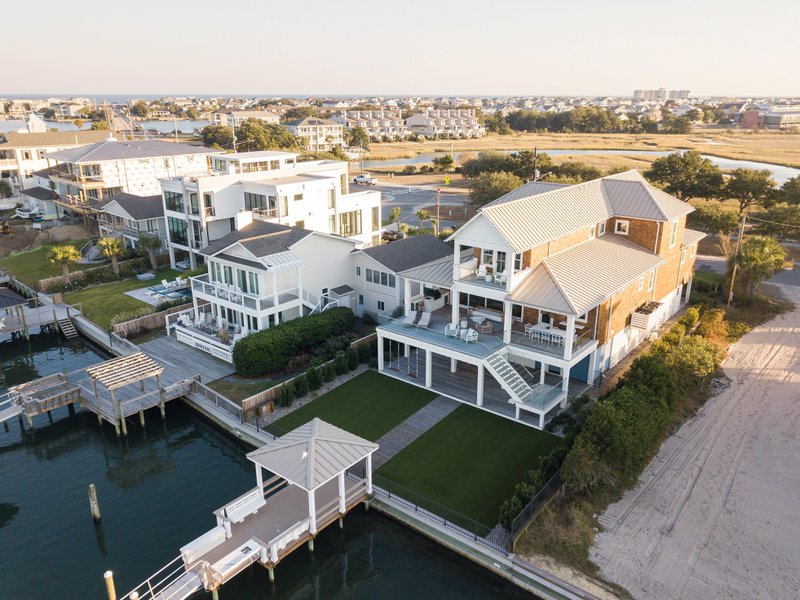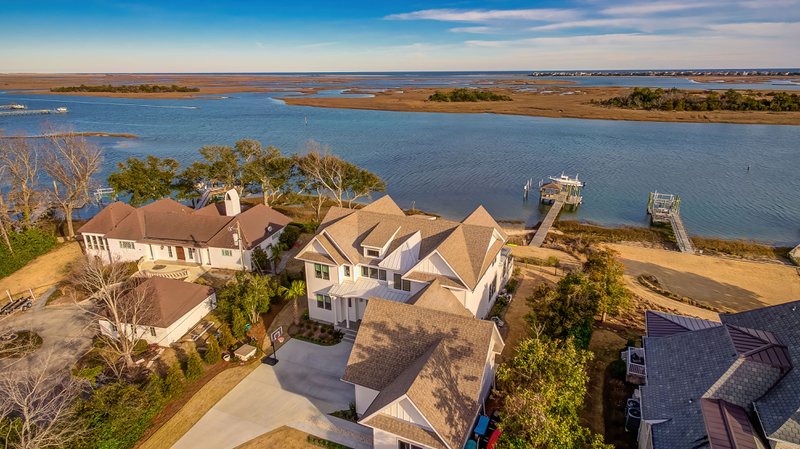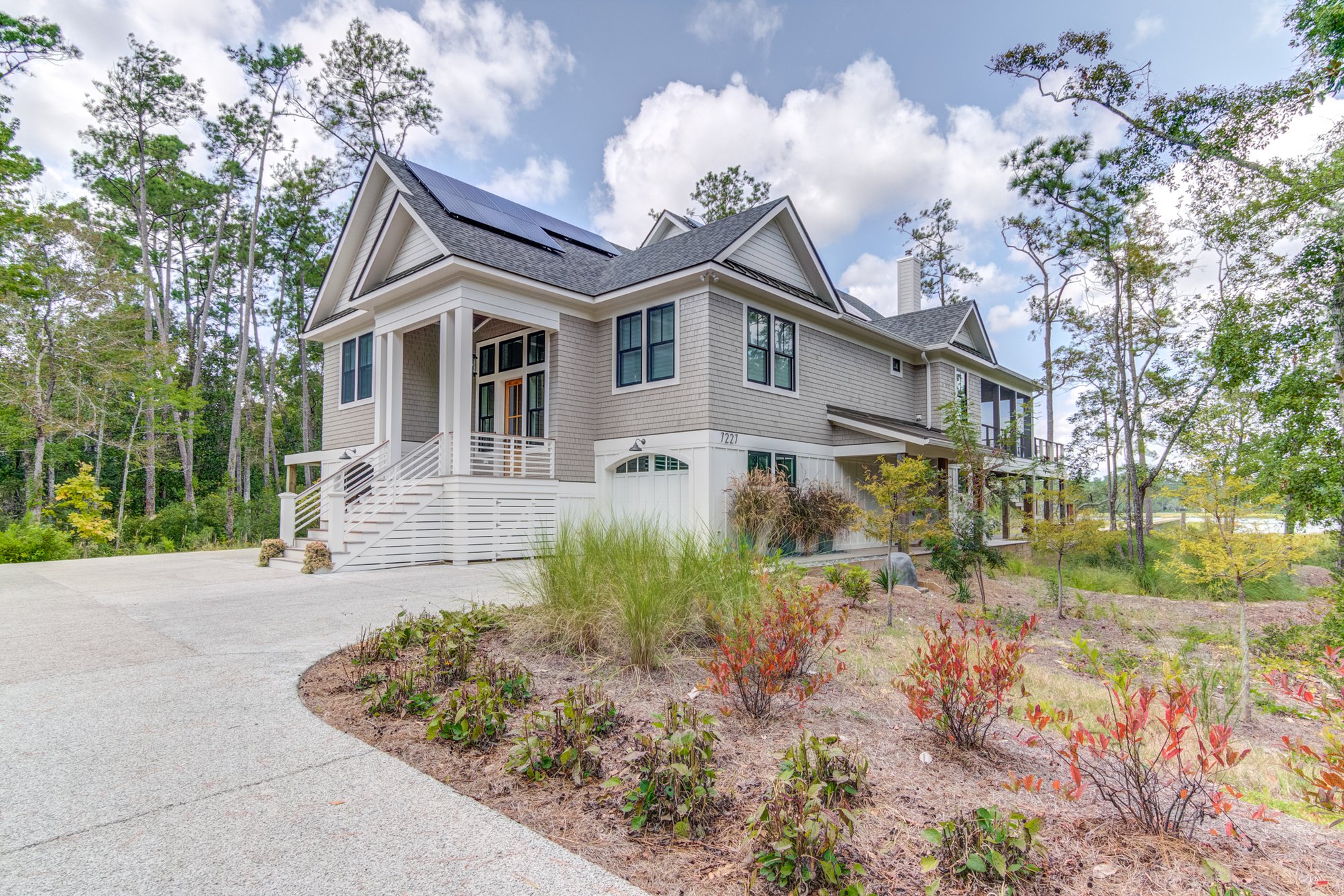A custom home begins long before the first nail is hammered or the blueprint is drawn—it starts with the land. That stretch of coastal North Carolina soil isn’t just a location; it’s the foundation for your future. From the morning sun streaming through your kitchen windows to the view from your porch at sunset, the lot you choose will shape every part of how your home looks, functions, and feels.
Before building your custom home, evaluating the land is as important as selecting a floor plan or picking finishes. Zoning laws, flood risks, access to utilities, and even how the property captures natural light all play into whether a piece of land is a perfect fit—or a costly misstep. With the right approach, though, finding the ideal lot can be a smooth and empowering process.
Let’s break down what to consider when choosing land for your future custom home.
1) Zoning Laws Shape Your Options
The first step in evaluating any lot is understanding what you’re legally allowed to build on it. Local zoning regulations govern what types of structures can be built, how tall they can be, how close to the property lines they can sit, and what activities the property can be used for.
If you're planning a detached garage, a guest suite, or a backyard workshop, zoning will determine whether those ideas can come to life. Some areas have strict architectural guidelines or neighborhood covenants, especially in coastal communities that prioritize visual cohesion and environmental protection.
It’s essential to verify the zoning classification before purchasing. Look for any overlay districts, easements, or planned developments that might affect what—and how—you can build.

2) Utility Access Impacts Cost and Comfort
Even the most beautiful lot can become a logistical challenge without proper access to infrastructure. Before making an offer, confirm the availability and location of essential utilities. You’ll want to know:
- Is there a municipal water line, or will a well be required?
- Are electrical connections nearby, or will new poles or transformers be needed?
- Is high-speed internet available, particularly if remote work is part of your lifestyle?
Also evaluate the road conditions and how accessible the lot is for construction crews and delivery trucks. Lots located along private roads or in undeveloped areas may require road improvements that can delay your timeline and add costs.
3) Flood Zones and Environmental Conditions
Coastal North Carolina offers breathtaking views and close proximity to water—but that beauty comes with environmental considerations. Building a custom home here means carefully assessing flood zones, drainage patterns, and long-term land stability.
Use FEMA flood zone maps to determine the property’s flood risk. In some areas, building within a designated flood zone could require elevating your home or installing specific mitigation systems, which could impact both design and budget. Coastal erosion and storm surge exposure should also be evaluated.
Beyond water-related risks, be mindful of protected ecosystems or native wildlife that may limit land use or require special permits. A certified environmental consultant can provide insights during due diligence.
4) Orientation Enhances Livability
The way a lot is positioned can influence everything from your home’s energy efficiency to its comfort and ambiance. A south-facing home in this region typically benefits from year-round sunlight, reducing heating costs and boosting natural light.
View corridors, wind patterns, and privacy from neighboring homes are also important. Does the lot allow for windows that frame water views or wooded areas? Can outdoor living spaces be designed to catch ocean breezes while offering shelter from harsh afternoon sun?
How the home sits on the land should enhance your lifestyle, not work against it.
5) Location Still Matters
Even if the lot itself is perfect, it’s crucial to consider what surrounds it. Proximity to schools, shops, parks, and healthcare facilities plays a major role in long-term satisfaction. Whether it’s an easy morning school run, a short drive to the beach, or quick access to your favorite seafood market, convenience should be part of the equation.
Also consider the rhythm of the neighborhood. Is it peaceful and residential? Active and vibrant? Seasonal or year-round? These factors shape not just where you live—but how you live.

Ask the Right Questions: A Custom Home Lot Checklist
Land selection isn’t just about what you see—it’s about asking the right questions before committing. Here are a few essentials to guide your lot evaluation:
- Zoning: What restrictions exist on building height, structure type, and setbacks?
- Utilities: Are water, electricity, internet, and sewer/septic systems readily available?
- Flood Risk: Is the property in a FEMA-designated flood zone? What elevation is required?
- Orientation: Does the lot receive ample sunlight? Will views be obstructed by future development?
- Access and Infrastructure: Are roads paved and well-maintained? Will deliveries and construction be easy?
- Surroundings: How close are schools, shopping, and recreation? Does the neighborhood match your lifestyle?
Bring these questions to your real estate agent or builder, and don’t hesitate to request documentation or site evaluations before moving forward.
Make the Land Work for Your Vision
A custom home gives you the freedom to build something completely personal—but only if the land supports your vision. Whether you imagine a wraparound porch, a backyard for entertaining, or a detached garage with storage for your kayaks, the right lot makes all the difference.
At Konrady & Son Construction, we know how to help clients make smart decisions about land before the building process begins. We work closely with local planners, surveyors, and utility companies to ensure your lot is truly ready for your custom home.
Start Building with Confidence
A custom home begins with a bold decision: to create something uniquely yours. And that journey starts with the land beneath your feet. The right lot gives your ideas room to grow—it elevates your investment, your daily life, and your future. Send us a message so we can start building the home of your dreams.
Leave a Reply Cancel reply
site design
Monday - Friday
8:00 AM- 5:00 PM
435 Eastwood Rd
Wilmington, NC 28403
